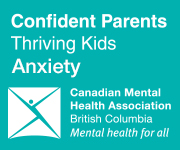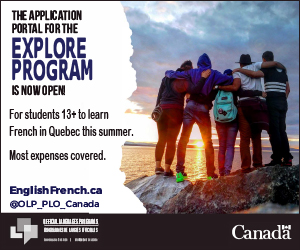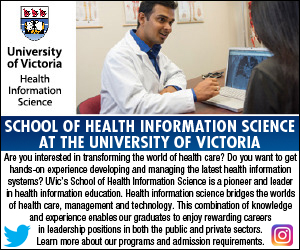
| Archive | Printer Friendly | Send to a Friend | BC Counsellor |
|
Counselling Corner
Source: PACEs Connection Although there is still much to learn about adverse childhood experiences (ACEs) and how to prevent and mitigate their effects, we also all know that childhood experiences are not limited to those that involve adversity. All childhood experiences matter. In the last few years, researchers have started to examine the impacts of positive childhood experiences (PCEs) on children and adults. In 2019, a team of researchers — Dr. Christina Bethell, Jennifer Jones, Dr. Narangerel Gombojav, Dr. Jeff Linkenbach and Dr. Robert Sege — found a dose-response association between positive childhood experiences and adult mental and relationship health among adults who had experienced ACEs, irrespective of how many ACEs they had. This means that it's really important to have positive childhood experiences, no matter how much adversity you have in your life. And if you have a lot of adversity and a lot of positive childhood experiences, you are less likely to suffer the consequences of ACEs. However if you have no positive childhood experiences and few ACEs, the consequences of the ACEs are more likely to appear. Positive Childhood Experiences and Adult Mental and Relational Health in a Statewide Sample: Associations Across Adverse Childhood Experiences Levels | JAMA Pediatrics. To find out what positive childhood experiences you have, answer the following questions. How much or how often during your childhood did you: - feel able to talk to your family about feelings; • Also in 2019, Bethell, Gombojav, and Dr. Robert Whitaker reported that at each level of ACEs, “the presence of flourishing increased in a graded fashion with increasing levels of family resilience and connection.” Family Resilience And Connection Promote Flourishing Among US Children, Even Amid Adversity | Health Affairs • In 2014, Bethell, Dr. Paul Newacheck, Dr. Eva Hawes, and Dr. Neal Halfon found that children with higher ACE scores were less likely to demonstrate resilience, live in a protective home environment, have a mother who was healthy, and live in safe and supportive neighborhoods. However, almost half of the children who had experienced ACEs also demonstrated resilience, and “resilience mitigated the impact of adverse childhood experiences on grade repetition and school engagement.” Adverse Childhood Experiences: Assessing The Impact On Health And School Engagement And The Mitigating Role Of Resilience | Health Affairs • In a study published in 2021, Whitaker, Dr. Tracy Dearth-Wesley, and Dr. Allison Herman wrote that “greater childhood family connection was associated with greater flourishing in US adults across levels of childhood adversity.” Childhood family connection and adult flourishing: associations across levels of childhood adversity - Academic Pediatrics (academicpedsjnl.net) • Dr. Yui Yamaoka and Dr. David Bard reported in 2019 that “the number of adverse childhood experiences was associated with both social-emotional deficits and developmental delay risks in early childhood; however, positive parenting practices demonstrated robust protective effects independent of the number of adverse childhood experiences.” Positive Parenting Matters in the Face of Early Adversity - PubMed (nih.gov) • Among juvenile offenders, Dr. Michael Baglivio and Dr. Kevin Wolff discovered in 2020 that “high ACE scores were associated with increased reoffending, and high PCE scores were associated with decreased recidivism, as measured by both rearrest and reconviction. Further, among juveniles with four or more ACEs who have six or more PCEs, reconviction was 23% lower and rearrest 22% lower when compared to those youth with four or more ACEs and less than six PCEs, controlling for a host of demographic and criminal history measures.” Positive Childhood Experiences (PCE): Cumulative Resiliency in the Face of Adverse Childhood Experiences - Michael T. Baglivio, Kevin T. Wolff, 2021 (sagepub.com) • Dr. Michael Baxter, Dr. Eden Hemming, Dr. Heather McIntosh, and Dr. Chan Hellman published research in 2017 that demonstrated that higher ACEs scores were associated with lower hope in a study of caregivers who brought children in for a child abuse medical investigation at a child advocacy center. Exploring the Relationship Between Adverse Childhood Experiences and Hope: Journal of Child Sexual Abuse: Vol 26, No 8 (tandfonline.com) • In 2019, Dr. AliceAnn Crandall, Dr. Jacob Miller, Dr. Aaron Cheung, Dr. Lynneth Novilla, Dr. Rozalyn Glade, Dr. M. Lelinneth Novilla, Dr. Brianna Magnusson, Dr. Barbara Leavitt, Dr. Michael Barnes, and Dr. Carl Hanson observed in a study of adults that “higher counter-ACEs scores [i.e., positive childhood experiences] were associated with improved adult health and that counter-ACEs neutralized the negative impact of ACEs on adult health.” ACEs and counter-ACEs: How positive and negative childhood experiences influence adult health - ScienceDirect • A study by Whitaker, Dearth-Wesley, and Herman in 2020 showed that across levels of childhood adversity, greater childhood family connection was associated with greater flourishing among young adults with type 1 diabetes. Childhood Family Connection With Flourishing in Young Adulthood Among Those With Type 1 Diabetes | Pediatrics | JAMA Network Open | JAMA Network • Finally, in 2016, Bethell, Gombojav, Dr. Michele Solloway, and Dr. Lawrence Wissow examined ACEs, resilience, family protective factors, and emotional, mental or behavioral conditions (EMB) in children and youth in the U.S. The authors found that children with ACEs had higher EMB than children without ACEs, but the presence of resilience was significantly associated with lower amounts of EMB for both children with and without ACEs. In addition, the prevalence of EMB was lower when family protective factors were present, even if the child had ACEs, although the presence of two or more ACEs decreased the effect. Adverse Childhood Experiences, Resilience and Mindfulness-Based Approaches: Common Denominator Issues for Children with Emotional, Mental, or Behavioral Problems (nih.gov) In terms of research, these are still early days, says Dr. Robert Whitaker, director of Research and Research Education at the Columbia-Bassett Program and professor of Clinical Pediatrics in the Vagelos College of Physicians and Surgeons at Columbia University: “This area of PACEs research is emerging, but the boundaries of that research have not really been defined, particular as complement to the well-established body of research on resilience.” The Learning Curve
BCSCA membership pays! As a BCSCA member, you have access to discount codes for workshops from a variety of pro-d providers including Jack Hirose & Associates, the Crisis & Trauma Resource Institute, and Mental Health Foundations. Check your email or the BCSCA members only Facebook page for codes to access these discounts. More information coming soon on the new BCSCA website. There is some very good news in respect to Compassionate Systems Leadership in B.C. The Ministry of Education has provided funding to the Human Early Learning Partnership (HELP) to build and facilitate a BC Compassionate Systems Leadership Network. This is an exciting next step to grow the investment that has been made through the many training sessions led by Peter Senge and Mette Boell, and the ongoing work that Joanne Schroeder has co-led to establish a CSL learning community. Joanne is Strategic Initiatives Manager for Compassionate Systems Leadership at the Human Early Learning Partnership; she will be acting as the Network Coordinator and will be working with Kimberley Schonert-Reichl as Principal Investigator with support from the rest of the HELP team. The network will focus on three domains of activities: Connecting, Learning, and Resource Development. This will mean: - more consistent communications, Currently, sessions run every second Thursday morning from 7:30 to 8:30 a.m. Please email Joanne (joanne.schroeder@ubc.ca) if you are interested in being connected to the network and also if you have friends or colleagues who would like to be included. They will keep you informed of all activities and opportunities as they develop. If you have any questions in the meantime do not hesitate to be in touch with Joanne for that, too.
Members Only
BC Counsellor Magazine
Do you enjoy writing and have an idea or perspective you might be willing to share with colleagues around BC and beyond? Is there a technique you rely on that could help others in their work as mental health professionals? Consider writing an article for BC Counsellor! We are always looking for ideas and contributors, including Youth Voice authors (i.e. students who are open to sharing their experiences with or perspectives on mental health); these authors are also typically round and recommended by school counsellors. Please email publications chair, Shirley Giroux (bcsca.editor@gmail.com), or see the attached author guidelines for more information. |
||||||||||||





